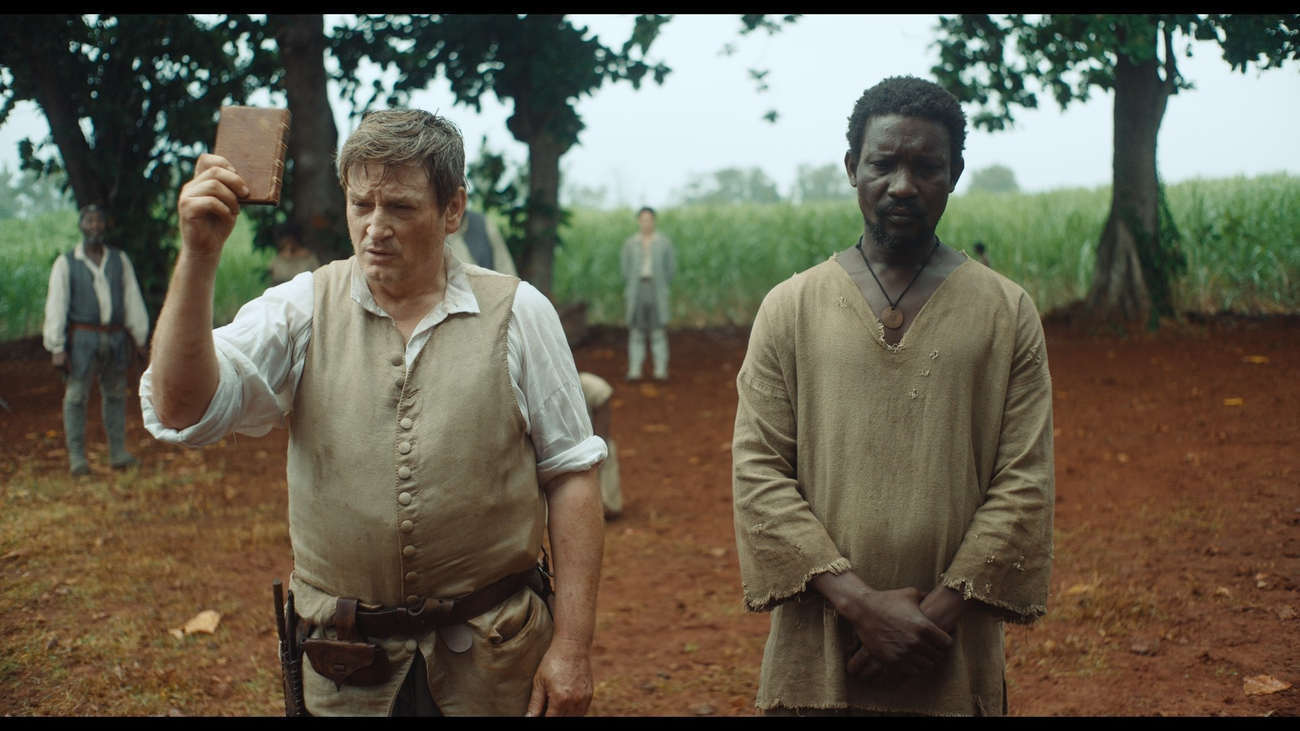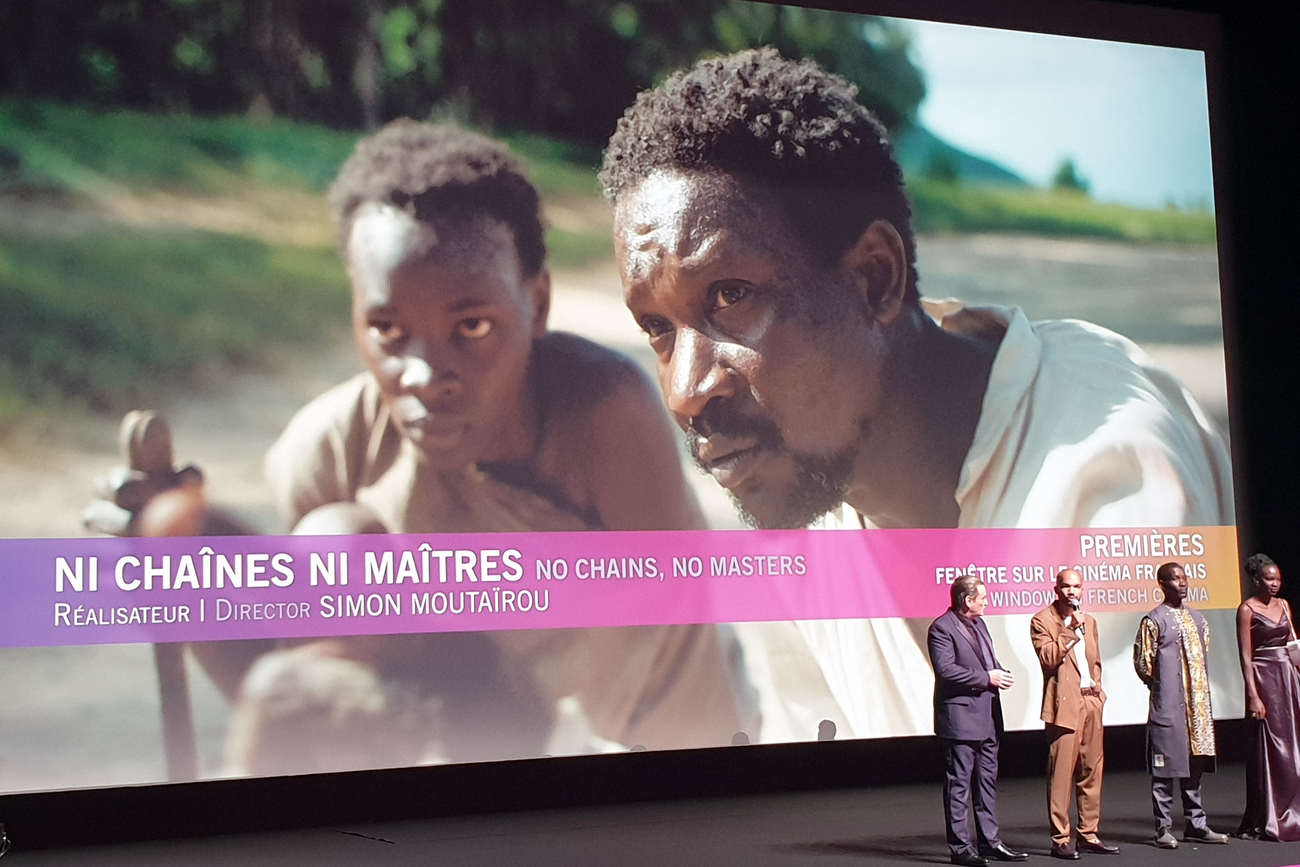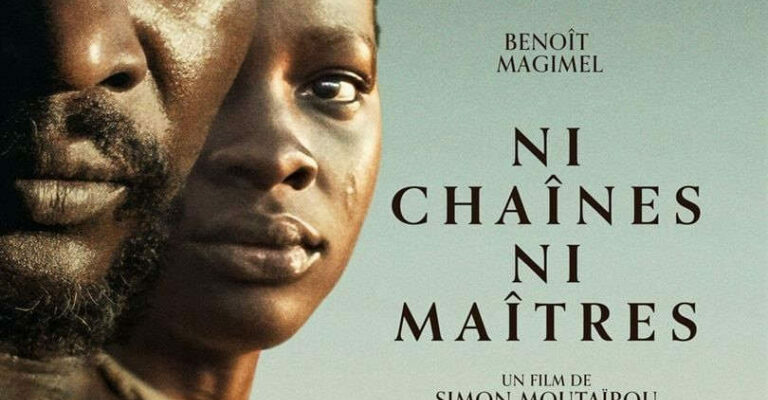“It’s a film about a forgotten page in French history,” says director Simon Moutaïrou, who has shot a historical and necessary French western to ‘raise awareness’.
While American cinema has often evoked slavery, inherent to the history of the United States, French works on the subject are rather rare. The story of a slave who runs away to escape his sad fate, pursued by cruel oppressors, is fairly standard Hollywood fare; but it’s a novelty in a French film, “Ni Chaînes ni Maîtres” (released on September 18), the first feature directed by Simon Moutaïrou, until now a screenwriter (“Boîte noire”, “Goliath”, “L’Assaut”) .
“It’s a film about a forgotten page in French history, the maroonage”, explained the director before the preview screening at the Deauville Film Festival. A “marron” was “a man or woman who breaks his or her chains”, a slave who managed to escape. In Normandy, Simon Moutaïrou was accompanied by “the film’s two stars, the emotional heart”, actors Ibrahima Mbaye and Anna Diakhere Thiandoum, found during casting in Dakar, as well as Benoît Magimel, then president of the Deauville Festival jury. Magimel plays the villainous slave owner and ruthless ruler, while Camille Cottin plays Madame La Victoire, a slave hunter and arrogant “she-devil” who asserts: “I believe in the virtues of punishment”.
The punishments, the tortures, are for the “marrons” found while trying to escape the “green hell” of the sugar cane plantations. Filmed in the Creole community of Mauritius and inspired by a Mauritian legend, this film is a French western, set in 1759 in Isle-de-France (as Mauritius was then called), when the colonial order laid down the law.
A manhunt in the forest

An old slave, Massamba (Ibrahima Mbaye) is considered a “white man’s dog” by his fellow slaves. His father’s only concern is to protect his daughter Mati (Anna Diakhere Thiandoum), dreaming that she might one day be freed. Choosing freedom, the young girl escapes; after being bitten by the whip on her back, the old father rebels and flees to find his daughter. A chase begins, a manhunt in the forest, led by Madame La Victoire.
Although one sequence shows bodies washed up on the beach, fugitives who have tried to escape by sea – a dramatically contemporary image – “Neither Chains Nor Masters” evokes a cruel past. Beings enslaved and mistreated by colonists, “locked in the absolute certainty of the hierarchy of races”. That’s why Simon Moutaïrou hopes to “awaken consciences” with this film, which is educational, historical and necessary.
Patrick TARDIT
“Neither Chains nor Masters”, a film by Simon Moutaïrou (out September 18).

